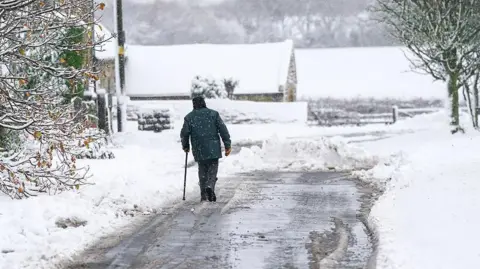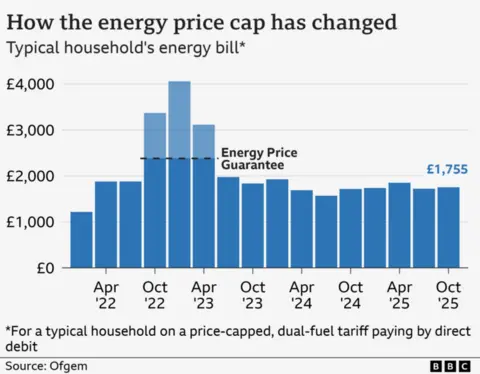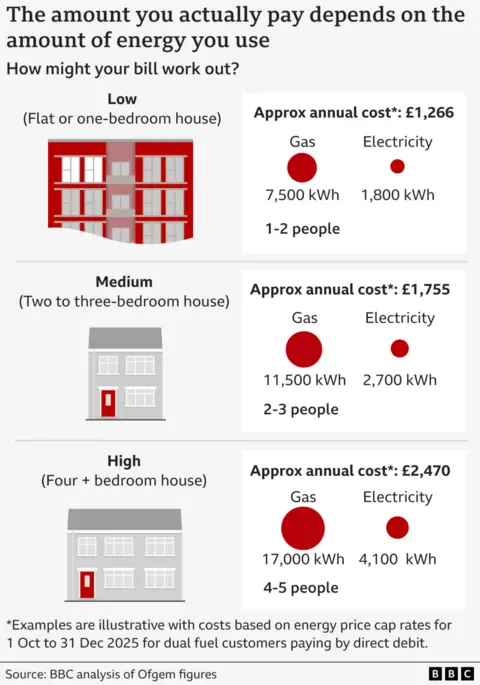Kevin PeacheyCost of living correspondent

 Getty Images
Getty Images
Regulator Ofgem will announce the next energy price cap later on Friday, with prices for millions of households expected to fall slightly at the height of winter.
Gas and electricity bills remain relatively high, and the sudden drop in temperature has brought the costs to the forefront of people's minds.
The next price cap will take effect at the start of January, and affect those on variable tariffs in England, Wales and Scotland.
Ofgem will announce the details at 07:00 GMT. Analysts have predicted a 1% fall in prices.
The cap sets the maximum price that can be charged for each unit of gas and electricity, not the total bill - so those who use more energy, pay more.
A 2% increase in October to the end of December means a household using a typical amount of energy is currently paying £1,755 a year.


The Ofgem cap is illustrated with a household using a "typical" amount of 11,500 kWh of gas and 2,700 kWh of electricity a year with a single bill for gas and electricity, settled by direct debit.
However, the amount used varies significantly between households, so the best way to calculate the change is to work out the percentage change from your own usual annual bill.
Analysts at the consultancy Cornwall Insight have predicted a 1% fall from the current cap to take effect in January, but for prices to then head back up in April.
The forecaster, widely respected for the accuracy of its predictions, said the main driver of energy bills was shifting from sky-high wholesale prices to the cost of overhauling and maintaining the country's energy networks.


Charities say they are seeing people owing increasing levels of unpaid bills and charges to suppliers.
The total amount owed has reached a record £4.4bn, prompting plans from Ofgem to ensure energy companies write off some of that debt.
Up to £500m could be knocked off the total under plans that regulator Ofgem wants to take effect early next year.
Dhara Vyas, chief executive of Energy UK, which represents suppliers, anyone facing difficulties paying should contact their energy provider as soon as possible.
"We know that far too many people are struggling to pay for the energy they need to use," she said.
But she added that suppliers could help with efficient appliances, tailoring the tariff to customers' needs or ensuring people were on the correct benefits.
The government has hinted at extra cost-of-living support in the Budget on 26 November.
In the meantime, as the cold weather sets in, various tips are available to keep people warm while controlling costs, including clothing, insulation and heating rooms people are in rather than the whole home.

 Movie
Movie 3 weeks ago
76
3 weeks ago
76 





![Presidents Day Weekend Car Sales [2021 Edition] Presidents Day Weekend Car Sales [2021 Edition]](https://www.findthebestcarprice.com/wp-content/uploads/Presidents-Day-Weekend-car-sales.jpg)




 English (United States)
English (United States)